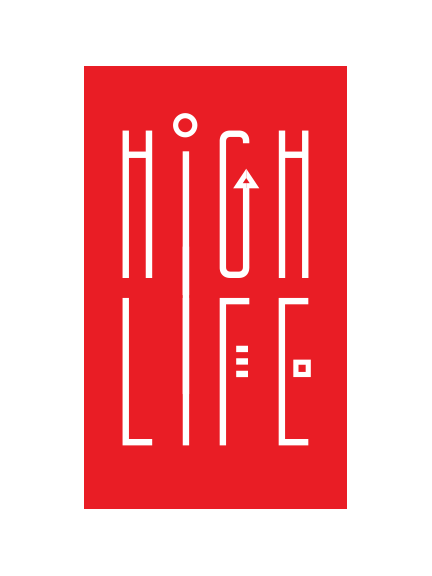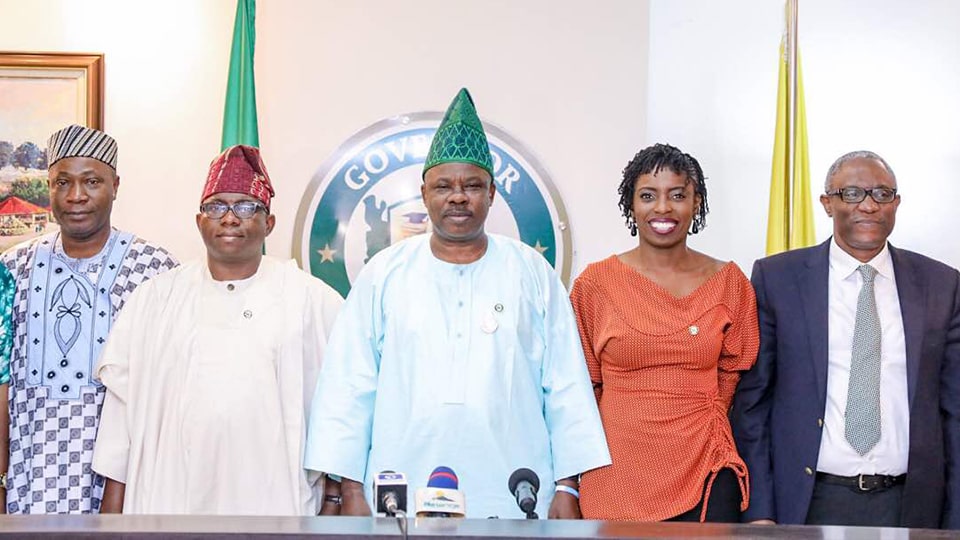On the 28th of May, 2019, I reached a very important milestone in my working life. It was the last day of my tenure as the Commissioner for Budget & Planning, Ogun State under the Senator Ibikunle Amosun CON, FCA Administration, Class of 2015-2019. For those who don’t know where that is, it is a state in the Southwestern region of Nigeria and if you are leaving Lagos into the rest of Nigeria in any direction by land, you will hit Ogun State. The appointment was an unexpected opportunity in my natural mind; I was working in Financial Services and had grown very restless but was unsure what was next. On reflection, even though it was a surprise to my mind, it was an opportunity for which my heart had been well prepared many years prior, but that is a story for another day. I am an unlikely candidate for a public sector appointment in Nigeria on the face of it. Born and raised in the UK, without the benefit of the ever-important Nigerian school network. No “we were in Corona together” no “we were in QC or FGC together” and no “we were in ‘Lag or Ife together”. No-one would naturally be looking for me for a public sector appointment that often comes as a result of positioning and lobbying, either in person or through sponsors. But the most important preparation was the preparation of my heart for service to my country and I would argue that in the end, it is the only non-negotiable prerequisite. It is this preparation of the heart that inoculates one against the disease of ‘service’ without ethics and without conscience. It is this preparation that breeds the contentment that enables one not to see serving in government, ‘the biggest spender in our economy”, as a natural opportunity to corner game-changing wealth. Once the heart has been prepared, one is free to focus on the business of service. There is much said about what is required to “survive” public office but for me, this is the most important thing. I should add that I would encourage as many women as possible with prepared hearts to please stand up. This is not just because gender equality is the discussion of the moment either. Nigeria currently faces a number of very serious challenges. Many of us will already know that our population is currently growing faster than our economy and this has been true for the past few years. Even when economic growth was more reassuring, the rate of job creation could not satisfy the demands of our overwhelmingly youthful population. It is expected that Nigeria’s population will have hit 400m by 2050. If we disaggregate that growth by region and by Human Development Index markers, I am certain that the picture will be even more frightening.
Despite all this, machismo dominates our political landscape in a manner that we simply cannot afford to continue. Women tend to be more practical, empathetic and notice things that men are more likely to overlook so this balance in public service is urgently needed, in my opinion. On this note, I must take a moment to commend my boss, Senator Ibikunle Amosun, CON, FCA for making far more room than most for women in his cabinet. Not just token positions either. Finance, Justice, Education, Agriculture, Housing, Women Affairs, Lands, Urban & Physical Planning and yours truly in Budget & Planning are just some of the portfolios that have been held by women during his 2011-2019 tenure and it is because of this that the term “SIA’s Angels” was coined.
To be clear, public service is a financial sacrifice and I thank God that along with the preparation of the heart, there was some preparation in that regard too. This I would also recommend. That said, we should make no mistake…the place of refuge against the raging economic and social winds moving through this phenomenally well-endowed land of ours is shrinking and we cannot all move to Canada! So even if our preparation is imperfect, we may have to get stuck in nevertheless! Granted, not every one of us will be appointed to public office but we must begin to involve ourselves at whatever level we can in public life. The next question at this point of the conversation is often “how?” and in truth, there is no playbook answer. And in any case, when there is a cause by which we are persuaded, we will usually find a way. For example, I am sure many of us know at least one woman that has a child with special needs. There was no playbook or roadmap before the child’s arrival but a mother’s determination that her child should have the best possible opportunities usually has a way of cutting its own path. The same is true in this instance – when we grasp the urgency of the hour, we will be compelled to find our place.
I worked hard in public service; often with blunt tools. It helped a great deal that my boss worked harder, and I am proud of him for that. The challenges in public service are numerous and we typically lack both the assets and the systems for optimal service delivery. The two must be developed simultaneously so inevitably, there will be mistakes along the way, but we cannot afford to focus on one vs. the other. In any case, the politics of our land often requires that the electorate see “things on ground” otherwise, it is believed that Government is just “speaking grammar” as is often said in these parts. There were many achievements by this Administration despite these sub-optimal working conditions. As for the Ministry of Budget & Planning, which I think of as perhaps the most critical internal organ of government in terms of being able to deliver effective service to the people, there are two things during my tenure of which I am most proud: OGSTEP and PSTO and both relate to system strengthening more than providing hard assets.
OGSTEP is a $250m World Bank Assisted Economic Transformation Program for Ogun State that focuses on building the systems of delivery in some crucial areas and rests upon four key pillars;
Agriculture – Increased Production and Development of Value Chains in focal areas to better meet consumer and industrial demand, better link rural and urban communities and increase wealth for farmers; a crucial constituency in the economy of Ogun State. This element of the program will also be effectively enhanced by the Rural Access & Agricultural Marketing Project (RAAMP) another World Bank program to build 500km of rural roads with an emphasis on Agricultural communities. Ogun State successfully qualified for and concluded preparations for this program early in 2019. For this I must commend HE Chief Mrs. Yetunde Onanuga, Ogun State Deputy Governor 2015 – 2019 for her tireless commitment along with her team in the Ministry of Rural Development to achieve this result.
Education – Technical & Vocational Skills Development and STEM in secondary schools. This will see the rehabilitation of at least six Technical Colleges in the state, build partnerships with industry and give rise to a system of demand-led vocational training both in the formal and informal training space to ensure that Ogun State’s burgeoning industrial base has the manpower that it needs, creating a virtuous cycle for the state. Science, Technology, Engineering and Mathematics learning, popularly referred to as STEM, which is so critical in preparing our children to be effective problem solvers in the context in which they are growing up will also be overhauled in secondary schools.
Business Environment– Land Administration Reform, the development of strategic, competitive industrial parks that enhance Ogun State’s existing industrial base and create much needed jobs and proactive and targeted investment through OgunInvest, Ogun State’s Investment Promotion Agency.
Governance– Procurement reform with the establishment of a Bureau of Procurement and the building up of the Procurement Cadre within the Civil Service, Statistics reform – establishing and developing a State Bureau of Statistics as an agency under the Ministry of Budget & Planning, Technical Assistance to help deliver an increased capacity for evidence based planning as well as an effective Monitoring & Evaluation function.
This programme, which had been in gestation for nearly three years, as well as the accompanying financial agreement was negotiated with the World Bank in May 2019 and hopefully, execution should be in full swing by the end of this year, bringing much-needed continuity and unlocking Ogun State’s significant potential. In addition, the 30 year tenor, concessionnary interest rate and five year moratorium should also afford the state the necessary breathing space to begin to derive benefit from the programme before the repayments commence.
PSTO – Public Service Transformation Office
This was established in 2018 and seeks to take us back to the glory days of the Civil Service when the best hands and the best minds worked there. I was a member of the steering committee and the office, which is being led by a Permanent Secretary that I am proud to say is doing a great job, is making a mark. The winds of change have begun to blow – rewards also for performance rather than just length of service. PSTO helps to build a more effective bridge between the transient Political Appointee and the Service, creating a platform for the transmission of best practice into the system and simply inspiring people to give their best once again. It helps to link actions with consequence, not just in terms of career development but in terms of the lives of the people that we have made a commitment to serve.
My ministry staff dutifully and heartwarmingly put together a ‘send forth’ for me on my last day in office. I told them something that I had mentioned before to groups of civil servants during my tenure – Jesus changed the world with 12 Apostles. Ogun State, though mighty, is smaller than the world and there were more than 12 people under the sound of my voice. The apostles were indeed a motley crew that included scholars, fishermen, tax collectors and doctors alike and probably felt that there was little to ‘qualify’ them for the mandate they had been given. We can tend to feel this way about public service and public engagement, in part because the chatter has led us to believe that decent human beings simply cannot operate there. Regardless of why we stay away, the result is the same – there is a vacuum that is filled by whoever turns up. The truth is that those of us that have had the most opportunity, the most exposure, and the most developed character, have a responsibility to serve. In the final analysis, nations are built by the resolve and commitment of their citizens. The economy, governance, social and civic development are all crying out for valiant soldiers to sign up to the cause. If a woman born and raised overseas, without the usual networks or connections can, not only survive public service but thrive in it, tell me, why can’t you?

